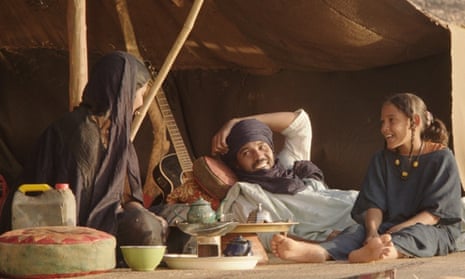A new documentary about the 2012 massacre of 34 miners in South Africa, Miners Shot Down, follows a group of low-paid employees as they fight against metals company Lonmin. The footage is reminiscent of scenes of battles between UK miners and police 30 years ago, one of the defining cultural reference points of Britain in the 1980s. Films are not only pieces of creative expression, they are also tools of communication and awareness raising, and a way of calling for social change.
The burgeoning African film industry is also a major economic driver. Recent figures released by the Nigerian government put the creative industries at 1.4% of Nigerian GDP, with “Nollywood” a major factor in this figure. The fact that the government has recognised the importance of the arts as a revenue earner is cause for celebration and the figure is higher if we take into account the informal nature of the Nigerian film industry. When the British Council asked a Nigerian filmmaker what single thing would improve his ability to do business internationally, he said contact with a market in Hackney, London. He ships 10 copies of his new DVDs there which then are copied and sold in newsagents and markets the length and breadth of the UK.
But film is not just a driver of economic growth, it is an opportunity to bring real prestige to a nation. The Cambridge African Film Festival starts on Saturday showing Abderrahmane Sissako’s Timbuktu, which was nominated for a Palme d’Or during this year’s Cannes Film Festival for it’s portrayal of Islamic extremism in Mali. Audiences in Cambridge will gain insight into African countries and cultures that aren’t often presented in mainstream media.
South Sudan also had a burgeoning film industry in 2011, sparked by a collective who learned skills from FilmAid International in Kenya at the height of the civil war. The Woyee Film & Theatre Industry released the first South Sudanese feature film and held the first film festival in South Sudan in 2012. Woyee set out to support young filmmakers’ stories about new, inclusive approaches to social issues as well as what it means to be citizens of a new independent nation.
In this way, film not only provides income-generating opportunities, but it also enables social development by providing a safe, creative space for new voices and ideas. The challenge is to create spaces for innovative, creative filmmaking while also recognising that resources, and skills, are limited. It takes time for social and political impact to be felt and understood, and the expanding film industry in Africa must be aware that commercial success is not the only goal here. A film can travel across borders and time and be translated into numerous languages, just as a film festival can bring the world to a local audience.
In Libya, training workshops resulted in series of short documentaries; Tripoli Stories and Benghazi Stories. The project took place in the face of great challenges: the week the Benghazi Stories workshop took place the US embassy was attacked. But these films are now gaining recognition at international film festivals and inspiring others in Libya.
In Africa, the combination of a rich cultural heritage with new media and technological opportunities has led to the emergence of a new breed of storyteller – the independent filmmaker. These filmmakers cannot be divorced from his or her environment, and therefore play a critical role in contributing to positive social and political development.
Culture is not a luxury for elites, it is a vital component of any society’s progress, and the international development community must not ignore it.
Graham Sheffield is director of arts at the British Council. Follow @GSheffieldArts on Twitter.
Read more stories like this:
Is there room for pop in policymaking?
Art attack: why getting creative about climate change makes sense
Creative Africa: how can the arts drive development? – podcast
Join our community of development professionals and humanitarians. Follow @GuardianGDP on Twitter.

Comments (…)
Sign in or create your Guardian account to join the discussion